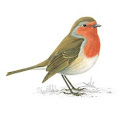There was a time in my life when I didn't have any keys. I had sold my car: no car keys. I had moved out of the House of Love: no front door keys. I had left campus: no office keys or mailroom keys. I was living at my parents' house, and they never lock their door (it's Vermont, after all), so I didn't need keys while I was there. In those few months between moving away from Indiana and getting married, I felt a bit unmoored.
Because keys are like little metal dog tags; they tell you who you are and where you belong. I guess they're a sign of possessions, as well, and not having them might be freeing. But they also do what their shape promises. They unlock, they allow access, they permit you to enter the familiar interiors of your life.
I saw keys in a different way, however, when I watched a beautiful documentary about a young Bulgarian woman working as a cleaning lady in Amsterdam. The camera follows her through her lonely days in empty rooms, communicating with upper-class Dutch families mostly through notes, as she straightens and sweeps and vacuums and scrubs. Speaking to the camera, she says she thinks she is losing herself. She feels like a ghost.
But she also takes pictures. Self portraits of herself in the cleaning closet or the bathtub, surrounded by household cleaners. Empty rooms with rumpled sheets. They could be out of an interior design magazine, but because of the point of view threaded through the whole of the collection, they present a diametrically different message.
To the back of the photograph she pastes the words from those notes, repetitive in their obligatory "how are you" and their demands to sweep the back stairs, wipe out the cabinet, change the laundry, a never-ending to-do list. She hangs these photographs and the notes inside a paper cut-out house, and on the floor of the house, she places her large collection of front door keys, all pointing upwards, a menacing carpet of jagged metal.
For her, the keys mean alienation, entrapment; they are a barrier and a burden. She is permitted to enter everywhere but is denied anything that make a home a home. Far from her family, working illegally, she is stalled and alone. Remarkably, though, she seems genuinely optimistic and her smile is always at the ready.
The woman's name is Hristina Tasheva, and the documentary is called The Houses of Hristina (see the trailer here). You can see many of her photographs here (click on the collection "A better life" for the ones shown in the movie).
By following the story of one woman, listening strictly to her voice, the documentary presents a beautiful meditation on domesticity, immigration, interiority, gender, social class, and art.
I'll never think of keys in the same way again.
18 February 2009
Off key
thoughts thunk by
Robin
at around
20:33
![]()
phylum or species: Bits and bobs, Memoir-ies
Subscribe to:
Post Comments (Atom)

No comments:
Post a Comment